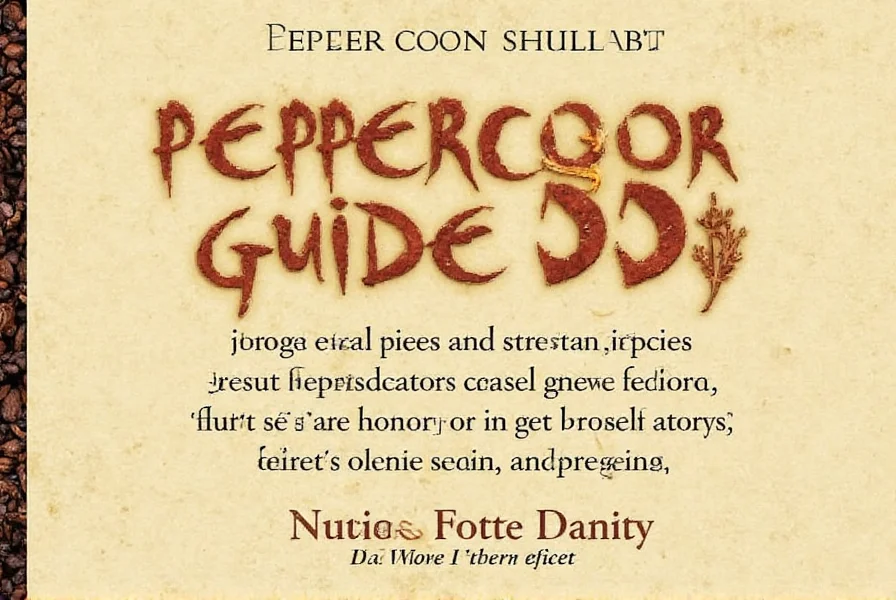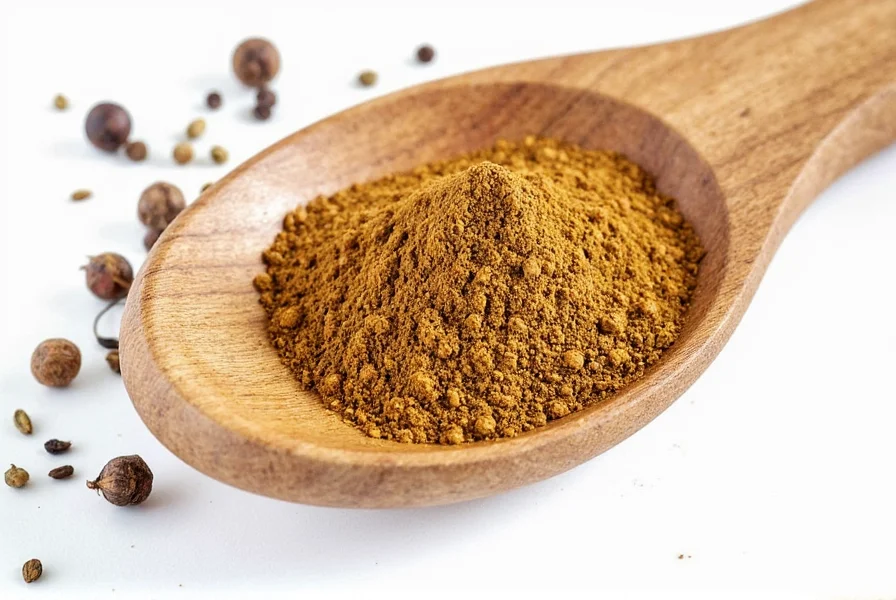Table of Contents
How to Use Peppercorn Powder in Cooking
Peppercorn powder is a versatile spice that enhances flavors in countless dishes. Here are expert-approved ways to use it effectively:
- Steaks & Grilled Meats: Sprinkle freshly ground black peppercorn powder on raw meat before cooking for a rich, aromatic crust. Professional chefs recommend applying it 10 minutes before cooking for optimal flavor absorption.
- Creamy Sauces & Soups: Add 1/4 teaspoon per cup of sauce for subtle heat. White peppercorn powder works best in light-colored sauces like béchamel where black specks would be visible.
- Marinades: Combine with olive oil, garlic, and herbs for 30-minute marinades. For seafood, use green peppercorn powder for fresh, tangy notes without overpowering delicate flavors.
- Vegetable Dishes: Toss roasted vegetables with olive oil and peppercorn powder before baking. Red peppercorn powder pairs exceptionally well with tomatoes and bell peppers.
- Baking Applications: Add 1/8 teaspoon to chocolate desserts for complexity. Use sparingly in bread dough for savory loaves like rosemary-seed bread.
| Type of Peppercorn | Flavor Profile | Best For | Expert Tip |
|---|---|---|---|
| Black Peppercorns | Sharp, pungent, slightly spicy | Meats, stews, marinades | Grind just before use to preserve volatile oils that provide aroma |
| White Peppercorns | Milder, earthy, slightly sweet | Dairy-based sauces, fish, light broths | Perfect for light-colored dishes where black specks would be undesirable |
| Green Peppercorns | Fresh, tangy, less spicy | Sauces, pickles, seafood | Soak in brine before use to enhance freshness |
| Red Peppercorns | Winey, fruity, slightly hot | Spicy dishes, chutneys, meat rubs | Combine with citrus for balanced flavor profiles |

Practical Tips for Working with Peppercorn Powder
- Grinding Fresh: Always grind peppercorns within 5 minutes of use. The volatile oils that create flavor begin evaporating immediately after grinding.
- Storage: Keep in airtight glass containers in a cool, dark place. Never store in the refrigerator (moisture causes clumping).
- Measurement: 1 teaspoon whole peppercorns = 3/4 teaspoon ground powder. Start with 1/4 teaspoon per serving and adjust to taste.
- Pairing: Black pepper pairs perfectly with garlic, olive oil, and citrus. White pepper complements dairy and eggs. Green pepper enhances seafood and salads.
- Professional Technique: For steak, apply pepper after searing to prevent burning. For sauces, add pepper at the end of cooking to preserve flavor.

Frequently Asked Questions About Peppercorn Powder
What is the difference between black pepper and peppercorn powder?
"Peppercorn powder" is simply ground black peppercorns. All black pepper comes from peppercorns, but "peppercorn powder" specifically refers to the ground form. True peppercorns (Piper nigrum) are unrelated to chili peppers.
How long does peppercorn powder stay fresh?
When stored properly in an airtight container away from light and moisture, peppercorn powder maintains peak flavor for 6-12 months. After 12 months, it gradually loses potency but remains safe to use for up to 3 years. You'll know it's past prime when it lacks aroma and heat.
Can I use peppercorn powder in baking?
Yes! A pinch (1/8 teaspoon) in chocolate desserts adds complexity without heat. Try it in brownies, chocolate cakes, or even cookies. For savory baked goods like bread, use 1/4 teaspoon per loaf. Always add at the end of mixing to prevent burning.
Why does freshly ground pepper taste better?
Peppercorns contain volatile oils that create their signature aroma. These oils evaporate within minutes of grinding. Pre-ground pepper loses 30-50% of its flavor compounds within 2 weeks. Professional chefs always grind fresh for optimal taste.
What's the best way to store peppercorn powder?
Store in a dark glass container with tight seal in a cool, dry pantry. Avoid plastic containers (they absorb odors) and refrigeration (moisture causes clumping). For maximum freshness, buy whole peppercorns and grind as needed.
How do I choose quality peppercorn powder?
Look for: 1) Uniform particle size (no large chunks), 2) Strong aromatic scent (not musty), 3) Dark color (for black pepper), 4) Packaging that's airtight or vacuum-sealed. Reputable brands include Penzeys, Spice House, and Spice Islands.
Buying Guide: Choosing the Best Peppercorn Powder
When selecting peppercorn powder, consider these expert criteria:
- Origin Matters: Indian Malabar peppercorns offer classic pungency, Vietnamese peppercorns provide balanced heat, and Madagascar peppercorns deliver fruity notes. For premium quality, look for single-origin options.
- Grind Quality: Avoid powders with large particles or clumps. The best products have uniform texture (like fine sand) for even flavor distribution.
- Packaging: Choose vacuum-sealed or nitrogen-flushed bags with resealable zippers. Glass jars with tight lids are ideal for long-term storage.
- Expiration Date: Reputable brands always include a "best by" date. Avoid products without dates or with dates over 12 months past.
- Price Point: $5-$10 for 4-8 oz is typical for quality. Extremely cheap options often indicate low-grade or stale product.
For professional chefs: Consider specialty blends like Tellicherry black pepper (extra-large berries for intense flavor) or Kampot pepper (Cambodian variety with floral notes).
Conclusion
Peppercorn powder is far more than just a simple seasoning—it's a culinary tool that can elevate any dish when used correctly. From expert techniques for meats and sauces to innovative baking applications, understanding how to select, store, and use peppercorn powder makes all the difference. Remember: freshness is key. Always grind whole peppercorns just before use, store properly in airtight containers, and choose quality sources for the best results. With these tips, you'll transform ordinary meals into extraordinary experiences every time.










 浙公网安备
33010002000092号
浙公网安备
33010002000092号 浙B2-20120091-4
浙B2-20120091-4